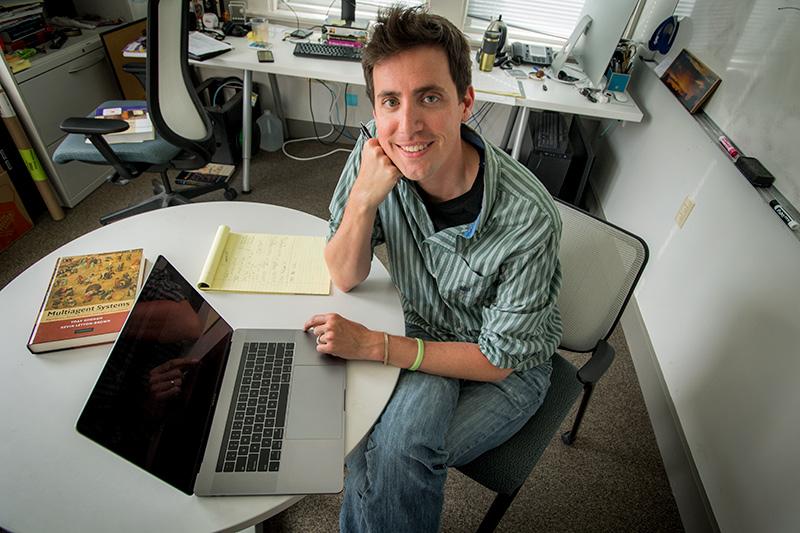Tulane professor hopes to demystify artificial intelligence
Nicholas Mattei, an assistant professor of computer science at Tulane University, wants to change the way people think about artificial intelligence.
“I hope to ground the conversation about the impacts of artificial intelligence and technology on our society,” Mattei said. “Much of the popular conversation in this area at times seems breathless and preys on the most fantastical elements of people’s imagination. I want to demystify AI and what its impacts on society are – or could be.”
"I want to demystify AI and what its impacts on our society are — or could be. This will hopefully lead to a more grounded conversation about these technologies and how to deal with them."
Tulane researcher Nicholas Mattei
Mattei is one of 12 artificial intelligence (AI) experts from across the United States who will spend the next year promoting meaningful dialogue about the role of AI on society as Alan I. Leshner Leadership Institute Public Engagement Fellows. Mattei was selected to be a fellow by the American Association for the Advancement of Science (AAAS).
The field of AI focuses on developing and studying machines and algorithms that augment or mimic human abilities, learning from and adjusting to new situations and performing complex tasks. The incoming AAAS Leshner Fellows work in a diverse range of disciplines, including information and computer sciences, engineering, deep learning theory, ecology, interaction design, neuroscience and robotics.
Mattei’s research focuses on the theory and practice of artificial intelligence, machine learning, data science and the impact of these technologies on society. He combines theory, data and experiments to create novel algorithms, mechanisms and systems that enable autonomous agents and humans to make better decisions individually and in groups.
Mattei's outreach plans include webinars and speakers, and he hopes his upcoming book “Understanding Technology Ethics through Science Fiction" (MIT Press), raises awareness about AI and the responsibilities of those who develop technology.
“We hope that using SciFi to communicate these issues will both appeal broadly and help the general public think about technology more thoroughly,” he said.
Working with the Tulane’s Center for Public Service, he is also developing a new service learning component for the Data Science class at Tulane. The course will match students with local partners such as the City of New Orleans and Code for New Orleans on semester-long projects that involve analyzing data.

